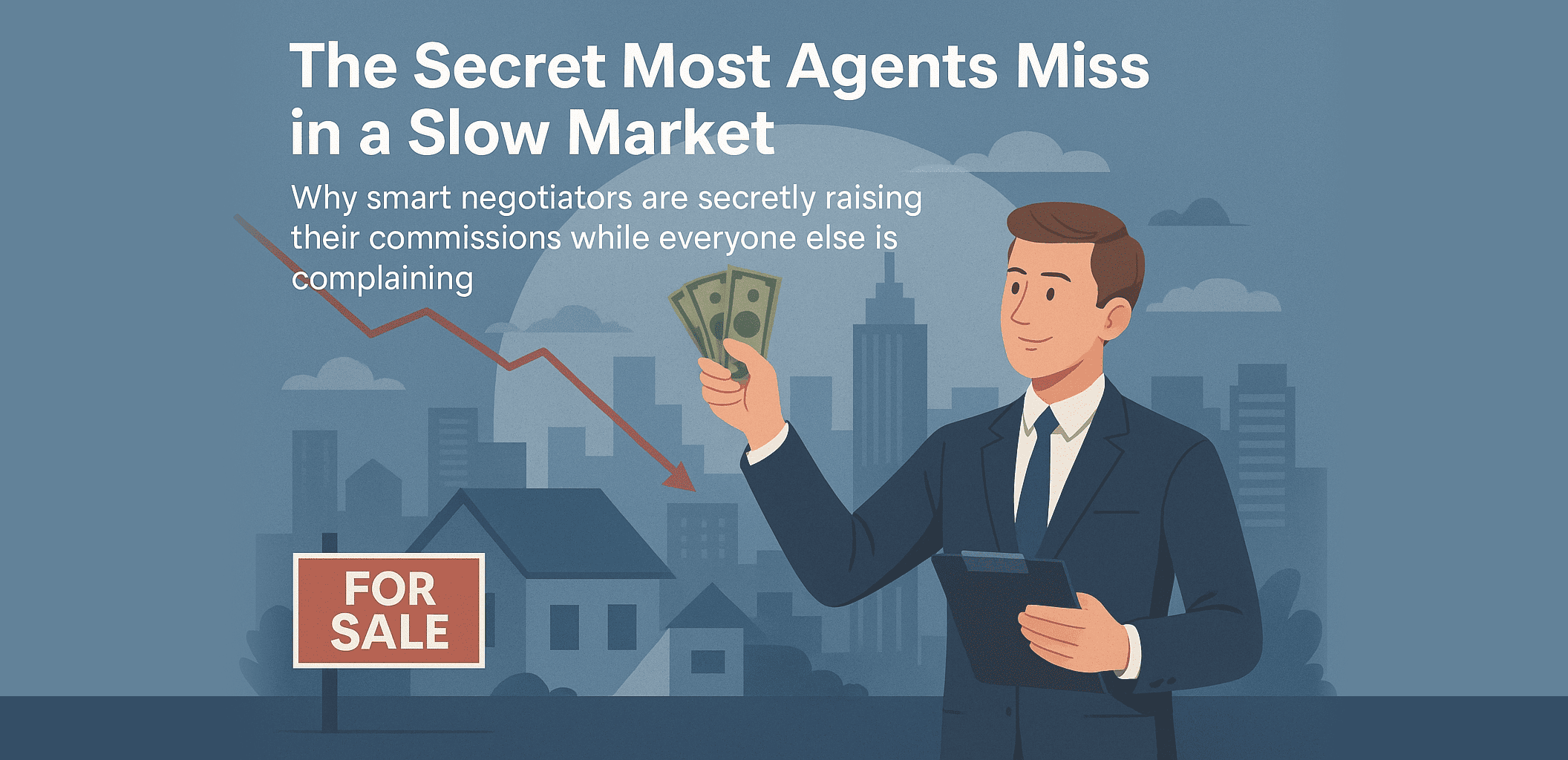The Secret Most Agents Miss in a Slow Market

Why smart negotiators are secretly raising their commissions while everyone else is complaining
Ask most agents about a slow market, and you’ll hear the same refrain: “Bad market, low transactions, nothing moving.” On the surface, that sounds true—fewer buyers, fewer deals. But here’s the twist: for sharp agents, a slow market can actually mean higher commissions and smoother closings.
Desperation Breeds Flexibility
When the market is hot, owners are confident. They hold out for higher prices, reject offers easily, and see no reason to pay agents more than the bare minimum. But when the market turns, the psychology shifts completely.
- Sellers become more realistic: They know buyers are scarce, so they’re willing to compromise.
- They become more flexible: Owners are more open to negotiation on price, terms, and even commission structures.
- They prioritize serious buyers: Instead of entertaining endless window-shoppers, they focus on making deals work.
This means agents can step in as the problem-solvers—and command higher fees for their value.
Developers Set the Example
The project sales market has already proven this.
- Not long ago, developers paid just 2% commission on new launches.
- But when sales slowed, they had no choice but to incentivize agents. Today, 4–5% is common, and in some cases commissions have climbed to 10% or more.
Why? Because developers need sales velocity, and they recognize that agents won’t prioritize a project without meaningful rewards. In a slow market, the only way to get attention is to pay for it.
Subsale Follows the Same Logic
The same principle applies in the subsale market.
When times are tough:
- Owners who truly want to sell are willing to pay higher commissions to ensure their property gets attention.
- Agents naturally give more effort to listings that pay more, making those properties a priority.
- With owners more realistic and buyers negotiating harder, transactions actually move smoother—because both sides are motivated to close.
How to Make the Ask
This is where most agents get it wrong. Asking for a higher commission isn’t about greed—it’s about priority and results. Here’s a simple script you can use with motivated sellers:
“Mr. Seller, in this current market, selling your property will require a significant investment in targeted marketing and relentless negotiation. To ensure your home is my absolute priority and gets the focus it needs to sell, my commission for this campaign will be X%. This guarantees it won’t just be another listing in a crowded market.”
This frames the fee as an investment in urgency and focus, not just a percentage.
The Agent’s Advantage in a “Bad Market”
So while many agents complain about slow conditions, the sharper ones see opportunity. A bad market weeds out the hobbyists and part-timers. Serious agents can:
- Focus on motivated sellers willing to pay more.
- Negotiate for higher commissions upfront.
- Position themselves as problem-solvers when others are giving up.
The result? Fewer deals, maybe—but bigger rewards per deal.











































































































